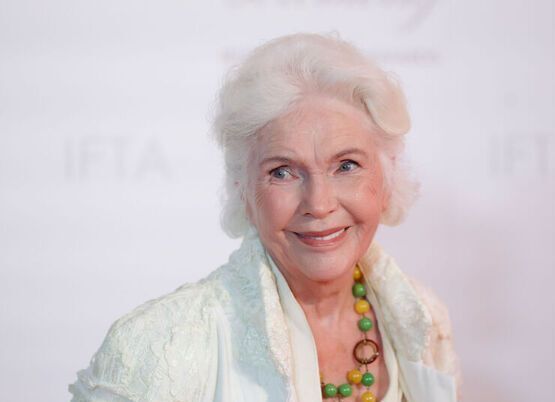Oswald_Mosley,Glyn_Warren_Philpot
A portrait of Oswald Mosley by Glyn Warren Philpot
at the National Portrait Gallery, London.
By Peter McDermott
Oswald Mosley was elected a Conservative MP in the “khaki” General Election of December 1918 for the Middlesex constituency of Harrow. The 22-year-old veteran of the Western Front was the youngest to take his seat at Westminster in the New Year. A brilliant career was promised.
A 21-year-old Sinn Feiner, though, was the youngest MP. Joseph Sweeney, a past pupil of 1916 leader Patrick Pearse at St. Enda’s School and a future general in the Free State army, was elected for West Donegal. Instead of traveling to Westminster, Sweeney became the youngest participant in Dáil Éireann, which met in Dublin on Jan. 21, 1919
The outbreak of the Irish War of Independence has generally been dated to an incident on the same day. Two members of the Royal Irish Constabulary were shot dead at Soloheadbeg, Co. Tipperary, while escorting gelignite to a quarry. They were Catholics, as were a majority of RIC men and a significant minority of its upper ranks. For that reason alone, the force was ill-suited to spearhead a counter-insurgency effort in a Catholic Ireland that had voted for a breakaway parliament.
The London government’s response was the Black and Tans and the Auxiliaries, which were recruited in Britain to deal with the worsening situation in Ireland. Prime Minister David Lloyd George promised he would have “murder by the throat,” but the brutal tactics used by these supplementary police forces would increasingly, in 1920 and 1921, become an embarrassment to the British military and political establishment. Young Mosley emerged as one of the most articulate parliamentary critics of the Black and Tans.
It was economic policy, however, that alienated him finally from the Tories. He switched to the Labour Party in 1922, and by the end of the decade he was given a non-Cabinet ministry in Ramsey MacDonald’s government. He resigned in 1930, and after a tour of Europe he’d swung back far over to the right. In 1932, he helped found the British Union of Fascists, modeled on the movement that ruled Italy.
Around this time, the recently widowed Mosley took up with Lady Diana Guinness, a great beauty who’d left her husband Bryan Guinness, the heir to the Irish brewing fortune. She was one of the Mitfords, whose father, a baron, was described as “one of nature’s fascists.” David Freeman-Mitford had one son and six daughters, four of whom became well-known for different reasons -- Nancy, the eldest, was a highly-regarded writer of novels such as “Love in a Cold Climate”; Unity was part of Adolf Hitler’s inner circle -- she shot herself when war was declared but survived for several years; Diana married Mosley in Goebbels’s home in 1936 in the presence of Hitler; and Jessica, or “Decca,” who had opposing politics to her fascist sisters, wrote one of the best-known American books of the 1960s.
Although the eldest, the novelist Nancy, was strongly anti-fascist and helped Jewish refugees, it was Decca who was the “red sheep” of the family. She eloped to America with her leftist second cousin Esmond Romilly, who was also a nephew to Winston Churchill by marriage. Romilly, a veteran of the Spanish Civil War, joined the Royal Canadian Air Force and was killed on a mission in 1942. Decca stayed on in the U.S. and married again, this time to a civil rights lawyer. The California-based couple joined the Communist Party, but left it in 1958.
In 1963, Jessica Mitford took on the funeral industry in “The American Way of Death.” She’d updated it with some assistance before she died in 1996 and it’s still in print. Decca remained estranged throughout her adulthood from her sister Diana Mosley, whom one journalist acquaintance described upon her death in 2003 as an “unrepentant Nazi.”
Both Mosleys were interned from 1940 through 1943 and then placed under house arrest for the rest of World War II. (While Sir Oswald’s many enemies thought him very able, the security services saw Lady Diana as the cleverer and more dangerous of the two.)
Oswald Mosley tried afterwards to rebrand his far-right politics with little success, and for the most part he and his wife spent their time at homes in France, Ireland and elsewhere. He had plenty of time through his death in 1980 to reflect upon his career.
For some of his critics, the downturn in his political fortunes could be traced to a public meeting in London in June 1934 at which hecklers were assaulted and thrown out onto the street. The Daily Mail withdrew its support and the tolerance for the British fascist movement went into decline.
This was all before the fascists embraced an explicit anti-Semitism and engaged in street battles with leftists and Jews in the East End of London. Mosley continued to model himself on European dictators and the BUF even saw a brief revival on the fringe as opponents of a coming war that everyone dreaded. Yet, it was that manhandling of protesters inside a meeting hall – protesters more likely to be readers of the Daily Worker than the Daily Mail – that had rubbed respectable Britons the wrong way.
For many, it was all you needed to know about the authoritarian nature of Mosley’s movement. And the controversy surrounding Donald Trump rallies is arguably all you need to know about him, too.
Some experts believe they have confirmed it by looking at the data about what voters are telling pollsters. Matthew MacWilliams, a political consultant and a PhD candidate at University of Massachusetts, Amherst, wrote in Politico on Jan. 17: “Trump’s electoral strength—and his staying power—have been buoyed, above all, by Americans with authoritarian inclinations.”
One Trump surrogate said last week: “You have a right to get into a closed, private event, and you get what’s coming to you.”
The Page 1 headline of the New York Daily News two mornings ago referenced the same notorious incident at a Trump rally last week. “Blood Money,” it said, and the subhead was: “Don moves to pay sucker-puncher’s legal fee.”
On Friday last, Breitbart News’ communications advisor Kurt Bardella resigned because of the conservative outlet’s failure to back up its reporter Michelle Fields, who claimed she’d been roughly treated by Trump’s campaign manager, and had the bruises to prove it. Fields has resigned, too.
Commented Bardella in a tweet, “My own personal observation is that there is an escalating cycle of behavior that happens only at Donald Trump events.”
“Escalating,” alas, is the key word here.
However, the Republicans, such as Rep. Chris Stewart of Utah, willing to compare Trump to Mussolini or other demagogues of the past are a minority.
In that group put Ross Douthat, the young conservative columnist for the New York Times. He had some drastic advice for the GOP in his piece on Sunday – remove Trump at the Convention during the summer, take the loss in November and rebuild.
“The weird rigors of this process have not always protected the parties from politically disastrous nominees, like Barry Goldwater or George McGovern,” Douthat wrote. “But Goldwater and McGovern were both men of principle and experience and civic virtue, leading factions that had not yet come to full maturity. This made them political losers; it did not make them demagogues.”
He continued: “Trump, though, is cut from a very different cloth. He’s an authoritarian, not an ideologue, and his antecedents aren’t Goldwater or McGovern; they’re figures like George Wallace and Huey Long, with a side of the fictional Buzz Windrip from Sinclair Lewis’s ‘It Can’t Happen Here.’ No modern political party has nominated a candidate like this; no serious political party ever should.”
Agreed, absolutely.
The problem is, if we are to believe MacWilliams, this is just the start. Authoritarian candidates will continue to find supporters in the years to come. But, for now, the majority has to concentrate on stopping the immediate threat.








